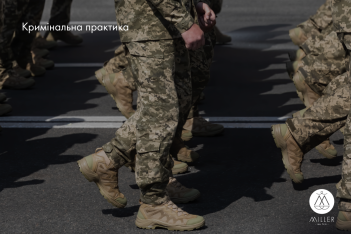I am Mariya Borevich, your personal lawyer. My primary goal is to help clients find optimal solutions to current legal issues, ensuring reliable protection of their interests. I specialize in family, civil, and military law, which allows me to effectively handle a variety of situations and cases. In family law, I provide support in resolving issues related to divorce, property division, establishing and challenging parental rights, alimony, and child custody. I understand that these matters are often emotionally complex, so I always strive to find the most delicate and fair solutions for all parties involved. In civil law, I assist in settling disputes related to contracts, property rights, compensation for damages, inheritance, and other issues concerning the protection of personal and property interests. Special attention is given to military law — supporting servicemen, protecting their rights and interests related to military service, social guarantees, and legal disputes. This area requires deep knowledge and understanding of the specifics of military service and the legislation regulating it.
Disobedience to military command, which is regulated by Article 402 of the Criminal Code of Ukraine (CCU), is defined as the open refusal of a military serviceman to carry out a lawful order of a commander or superior issued within the scope of his authority. This crime is a war crime and has several key characteristics:
Open refusal: Defiance must be clearly stated. This means that the serviceman clearly and openly refuses to comply with the order.
Legality of the order: The order refused must be legal and within the authority of the commander. If the order is illegal or exceeds the authority of the command, then refusal to carry out such an order is not considered a criminal act.
Refusal context: The circumstances in which the refusal occurred are usually considered, including the situation on the ground, the presence of danger, the ability to comply with the order, and other factors that may have influenced the serviceman's decision.
Punishment:
Disobedience may be subject to various types of punishments, from fines to restriction of liberty or deprivation of liberty for a certain period, depending on the circumstances of the crime and the presence of aggravating or mitigating circumstances.
This article is intended to maintain discipline and order in the armed forces and to ensure the effectiveness of military operations, as failure to comply with lawful orders can have serious consequences for readiness and security.
Lawyer for Disobedience to Military Command 402 CCU. If a serviceman is accused of disobeying military command under Article 402 of the Criminal Code of Ukraine (CCU), obtaining qualified legal assistance is critical.
Article 402 of the Civil Code defines disobedience as an open refusal of a serviceman to carry out a lawful order of a commander or superior issued within the scope of his authority. Such actions are subject to serious penalties, including fines, restriction of liberty or even imprisonment.
Steps when contacting a lawyer:
Choosing an Attorney: It is important to choose an Insubordination to Military Command 402 CCU attorney who has experience in military law and in cases similar to yours. An experienced lawyer will be able to better protect the rights and interests of the client.
Initial consultation: At this stage, the serviceman must provide all available information about the circumstances of the case, including details of the order and his actions. This will help the lawyer analyze the situation and develop a defense strategy.
Collection of evidence: The lawyer can collect witness statements, documentary evidence and other materials that can confirm the legality of the order or the circumstances of its non-execution.
Representation in Court: The lawyer will represent the military service member in court, presenting arguments aimed at justifying the client's innocence or mitigating possible punishments.
What is important to consider:
Legality of the order: A lawyer can assess whether the order was legal and whether the serviceman had the right to disobey it.
Circumstances of the case: The specific circumstances in which the refusal occurred may also affect the court's decision.
Applying for qualified legal assistance in such cases is not just a recommendation, but a necessity, as the consequences of the accusation can be very serious and have a long-term impact on the life and career of a serviceman.





























